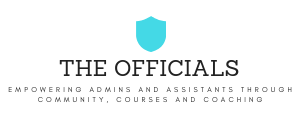Drawbacks
Working remotely might sound like heaven – no stressful commute, only to turn around in 8 hours to do it all again, and no long coffee lines. But it isn’t all pajamas and luxurious mornings in bed. In fact if you approach this style of working unprepared it can be just as stressful as going into the office. Pay attention to the areas you’re struggling in and proactively research and connect with people who can help you solve for them.
LONELINESS
The reality for some people, especially those who thrive in environments that nurture human connection, is that remote work can often be lonely. Loneliness is a recurring lamentation of those in remote work, making the transition can be especially tough if it’s something you haven’t prepared for.
THE LONELINESS ANTIDOTE, GET OUT AND ABOUT*
For many employees, combatting the sometimes lonely environment of working remotely means locating awesome workspaces that allow you human connection and help to get the creative juices flowing. There are a host of co-working spaces available now in most cities and many companies will sponsor your membership.
If you’re looking for something free, draw up a list of swanky hotels with generous sized lobbies, cafes and restaurants so you can snack and people watch. And of course, there’s always Starbucks or your local equivalent usually equipped with decent wifi and a good supply of treats, coffee and tea. Most metropolitan coffee shops will have no qualms with you hopping on and off virtual calls, as long as you’ve purchased a beverage.
*This course was written during the COVID-19 epidemic. If you are reading this course during that time, please follow government guidelines on travel and socializing to keep yourself safe.
OVERWORK
Outside of loneliness, another concern usually shared by folks who’ve been remote working for at least some stretch of time is overwork. When working remotely, the lines between work and life can easily become blurred.
For assistants this risk is magnified because we already work in the margins of the professional and the personal. I’ve learned that it’s critical to set healthy boundaries and (more importantly) to respectfully maintain them whenever they’re challenged.
TIMEBLOCKING
To prevent overwork, I leverage the art of timeblocking – it’s kind of the rage right now. Where you intentionally map out your scope of work each day and then strategically set aside blocks of time to ensure you either complete the work and/or get clear on next steps and revise time estimates.
The reality is the more you do it the better you get at it, your time estimates become more accurate and your productivity actually increases, because you’ve blocked time for both intense focus and release.
BOUNDARIES
In order to set boundaries, I use my calendar to clearly communicate what my boundaries are. If you have calendar sharing at your org set up great, I suggest you allow people to at least see the title of any non-confidential events. But if that makes you feel uncomfortable or isn’t permitted, use the free/busy time to communicate your availability. If your company uses Slack, update your status to reflect what area of work you’re focusing on so people know whether they should expect a response from you.
For example on my calendar I have an hour and half set aside everyday to process email and slack messages. I prioritize, sort and execute on anything that takes 2 mins or less (seriously if 2 mins pass and I’m not done I file it for heads down time). This lets people know that I will not be immediately responsive during this block of work.
NOTIFICATIONS
I also strongly suggest turning off notifications on the weekend – especially if you’re not being compensated for your time. In most places, it’s totally illegal for your employer to insist on your working while not being compensated and you simply shouldn’t stand for it. If people email you on the weekends, start turning on an auto responder that says:
*INSERT “I appreciate your message…” image here*
The message above is the kind that will change behavior and thought. In a remote world, people learn quickly that business happens when business happens. What is your morning may be someone else’s evening. Your Friday is someone else’s Saturday.
Creative people learn to work smarter under these conditions, not longer.
